Soil's Pace
Or, The Slow Plod of Love
It had to have been four, maybe five years ago that I found myself most grievously stricken by a burgeoning sense that I was utterly out of step with reality. As this feeling grew, my palms clammed up; “my blood pressure’s high” ceased to be a sterile medical phrase but a sensation in my body I could identify; the mustache that sits atop my upper lip was joined by a thin row of brackish sweat beads; I could feel my heartbeat in my toes; my stomach lurched. You may be wondering what caused me to have such a visceral reaction.
I was reading Wendell Berry’s The Unsettling of America whilst eating my 4 for $4 in a Wendy’s. I had never experienced cognitive dissonance so extreme before that moment and I don’t reckon I ever will again.
That moment felt like waking up. With a maybe-chicken nugget sopping with honey mustard between my teeth, I realized for the first time just how disconnected from the earth I was. All of a sudden I understood that my relationship with the ground and its produce was mediated to me through layers and layers of abstractions and processes and people, a relationship that, if mapped on to that between two people, could not sustain anything like intimacy and would be doomed to bitterness and failure. And so it was between me and the earth under my feet, this relational separation represented materially by layers of cloth, rubber, asphalt, and concrete. We — Mother Earth and I — had a disordered relationship and while it would be easy to lay the blame at the feet of the culture to which I belong, in the end I, Nathaniel, was a member of the offending party. Whether all the fast food spots in the country apologetically closed their doors or continued to sell their genetically modified wares in perpetuity, I needed to say sorry and mean it.
For many, the global pandemic catalyzed new activities and pursuits: the walls of many a home were closing in on their occupants, cabin fevers were spiking, and space in the schedule was abundant, so the time was ripe for making long-held dreams a reality. It was the perfect opportunity for me to make some plans, get some materials, and begin putting into action what I knew I needed to, what I now longed to do. I would do penance for years of ignorance-born neglect of the earth. Or, at least that is what I hoped to do: a return to the ground.
I resolved that day in Wendy’s dining room that I would garden.
As the days passed, the knot in my stomach—the result of reading Wendell’s book with my rear end firmly planted in the seats of one of the top purveyors of acceptable poison—loosened. Like a husband who promises to do better but does not deliver, my mind’s grip on the plans for gardening slipped as the iron of my will cooled to room temperature. Tepid iron remains unshaped. I returned to my complacent state of soil-ignorance. I also consumed many, many more 4 for $4s.
Fast forward to a weekend in April of this year. My wife’s boss had seeded a variety of crops but had more than she could possibly plant, let alone tend to, so she suggested that we go by her house and get some of them and start a garden. With a start, the iron I had let cool years ago was taken up and plunged back into the agrarian forge, ready for the hammer strike. It turns out that what I needed to begin this work wasn’t a plan or a pandemic, but a person. I needed a person to invite me to begin my penitential labor. I needed to be called forth and sent by another. And so we went to her house to retrieve a few dozen seedlings, went to The Home Depot for some lumber and other materials, and I went home to build my raised beds and plant my first garden.
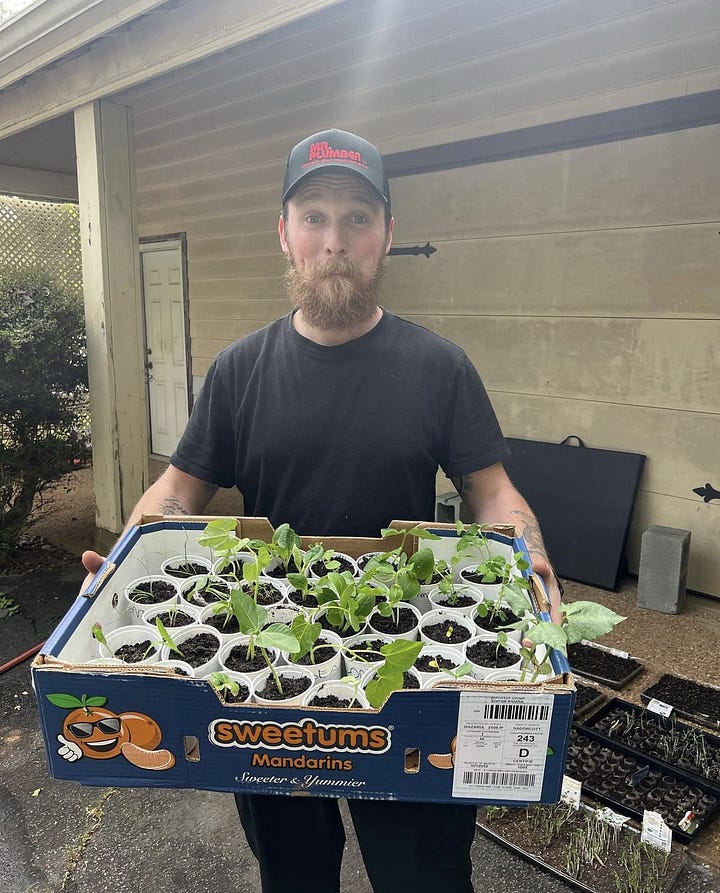
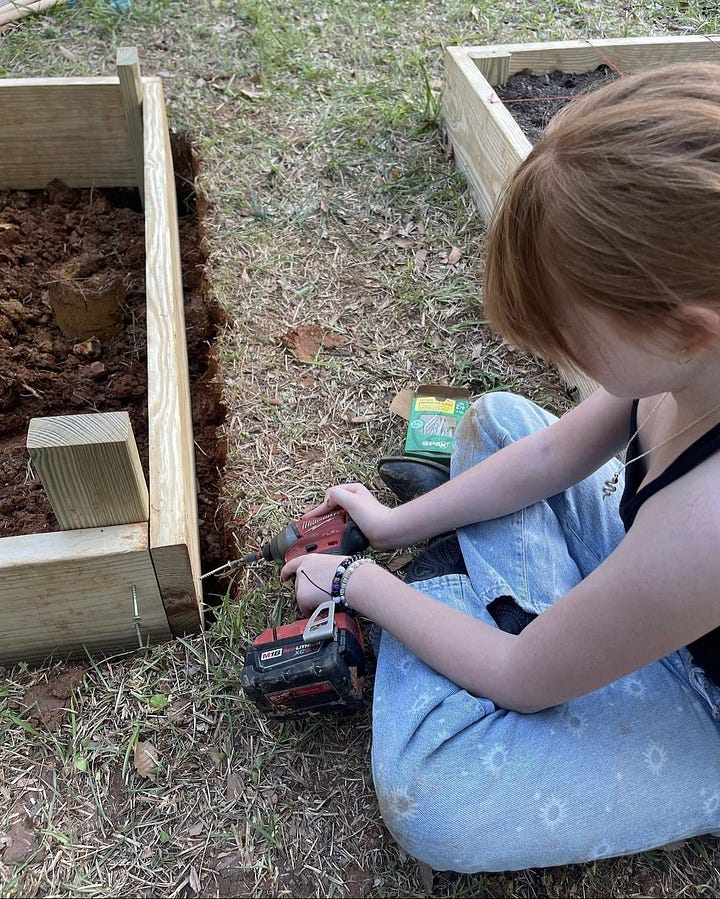
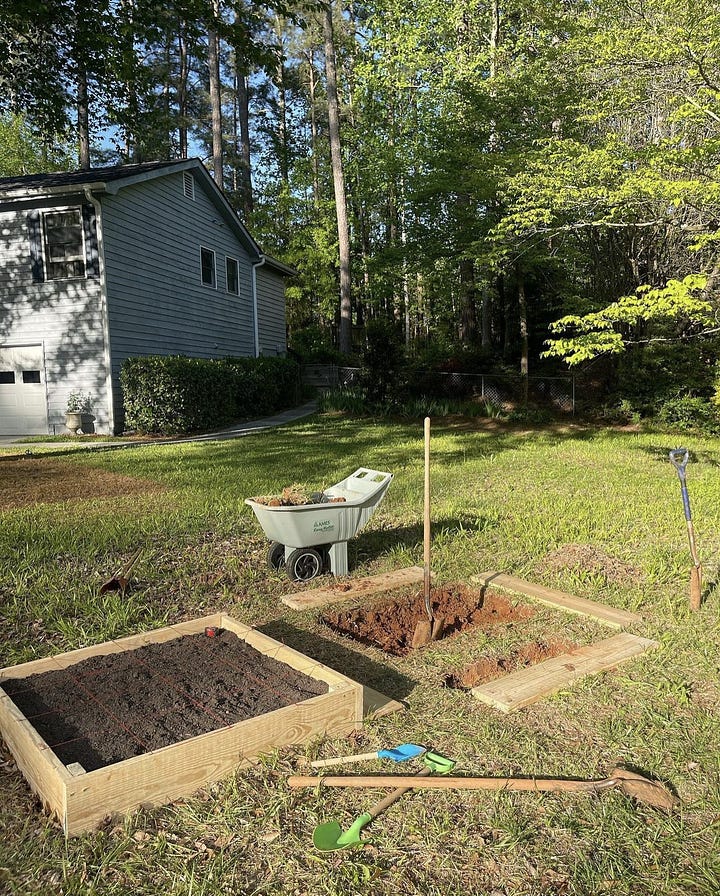
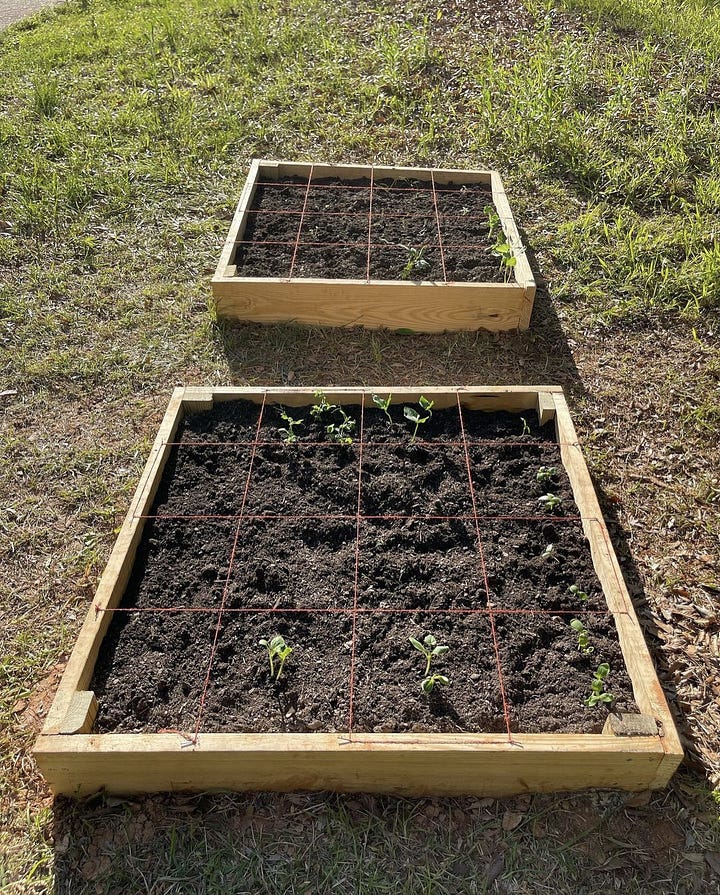
Within that context, I have taken Wendell Berry’s famous text back up for another perusing, this time from circumstances that look much different than my first brush with his writing. Now, for instance, I perspire when I am in my yard, not when reading his book.
Gardening and Life Hacks
I’ve been gardening for a grand total of six months at the time of writing this, so I have no authority to offer any substantial commentary on the practice and yet, perhaps foolishly, that is what I am about to do. Something I have noticed in a lot of online chatter, and an idea that Berry takes up early in his book to criticize as a feature of exploitive systems (although he would not call it by this name), is a strong impulse of modern culture: the “life hack.”
“Save a bunch of money on eating out by growing your own food at home!”
Life hacks are supposed to make activities more efficient or cost-effective or help to somehow guarantee their success. Gardening, after all, requires a lot of time. What modern would not want to cut that time down? What child of our current age would not want to have their harvest guaranteed by hack-magic? And yet requisite to bountiful harvest is intimacy with the ground, with the weather, with each individual plant even when they are of the same species and cultivar, and because that intimacy is not immediate, plants die quickly under the hands of the green-horned green thumb. The soil pH was not quite right; more drainage is needed in this section; less shade here, more shade there; an invasion of pests or a spreading mildew goes unnoticed; something gets planted out of season. And, when lessons aren’t learned, plants die not just quickly but repeatedly.
Gardening, as it turns out, is quite difficult. The difficulty increases the expenditure, and the activity is quickly abandoned since it was neither efficient nor cost-effective, nor again was the promised success in the form of flowering and fruiting plants found. In the end, “saving a bunch of money by growing your own food” turns out to be quite expensive with little immediate return. Gardening life hacks and, more often, gardening-as-life-hack have a hollowness rivaled only by that of the failed green thumb’s empty wallet.
The Inconsistency of Life Hacks in Gardening
The “life hack” is itself a pestilence that goes largely unnoticed, a parasite that hides in the shadows and cracks and crevices of our culture, slowly draining the life from it. Since nothing is sacred and everything is for sale, our innate desire to cultivate the earth has been colonized by social media and the market, branded and packaged and advertised to us like so many other trinkets and fads. But in a twist of irony, gardening is presented to us as desirable by the very culture that, by and large, does not itself desire it and will not allow us the requisite intimacy with the subject which we are now encouraged, nay, expected to hack. It is verging on abject irresponsibility to not make things more efficient, more productive, more effective, or to at least make the attempt. The life hack, disguised as a helpful good, sucks the life from the dying dream of gardening until, finally, all that remains is a browned, decaying husk of what might have been a harvest under other circumstances. Or perhaps under better, hackier hands.
The particular kind of way one exists in our present American society, a way that produces people that value and readily seek out the supposed benefits of life hacks, doesn’t seem to me like it harmonizes with a life in tune with the dirt and what grows from it.
Wendell Berry, to no one’s surprise, agrees.
“[T]he corruption of community, has its source in the corruption of character” (The Unsettling of America, pg 21).
A culture that takes Efficiency as one of its core values will necessarily produce communities bent towards exploitation, and exploitive communities in turn produce exploitive people. My order appears opposite of what Wendell has said here, but consider that culture is constructed and shaped by people who are shaped by and further shape the culture. In this case, it is an infinite feedback loop of exploitation. For Berry, this exploitation finds its power in the ability to separate person from established place. Establishment of place requires nurture, nurture requires time, and that time must be filled with care. “Only [kindly use of the earth] can dissolve the boundaries that divide people from the land and its care, which together are the source of human life” (pg 34). Care is not efficient.
But dirt, like love, don’t rush.
Gardening and cultivation of the soil is unhackable. It is a rooted discipline that generates life, something that doesn’t easily conform to one’s budget or one’s desires when those desires are shaped by a strictly neoliberal capitalist, market-driven imagining of what makes life good. It demands that you exist in a certain way in relation to the earth. The soil refuses to be subjugated by materialistic demands for very long. It will begrudgingly respond for a time to abuse, but it responds best to care. Care sustains. I have my needs and the soil has its own; I must know and care about them both. It must be loved, and love takes time and intimacy. What it can provide will not long abide the efficiency of transaction. I cannot, without doing great damage, purchase quickness from the earth. Love is not a hack.
Soil’s Pace
The expedience of the fast food industry is both a symptom of our wider obsession with efficiency and a mold into which our own desires are pressed and formed to long for speed in all things. But if we will listen to her, nature, ever our teacher, speaks to us a better way: the way of established place, the way of care-born intimacy, the way of love-filled time. Sure, I can quickly order something that will fill my belly and perhaps that will keep me alive until my next meal, but it is slowly killing my body and my imagination for a life lived at soil’s pace.
When I was reading Wendell Berry in a Wendy’s dining area, my body had a visceral reaction because I was being torn between two ways of existing in the world. I felt, for the first time, that division which is the goal of exploitation, which plays itself out in individuals and is the destroyer of cultures. I only then realized that I had failed to understand, as Berry says,
“…that we and our country create one another, depend on one another, are literally part of one another; that our land passes in and out of our bodies just as our bodies pass in and out of our land…” (pg 24)
To refuse to move at soil’s pace is to ensure its degradation and our own. We must accept the ground’s imposition of slowness. The earth will only be wooed and won and healed with gentle hands animated by souls that have embraced the slow, loving labor of bringing forth life.



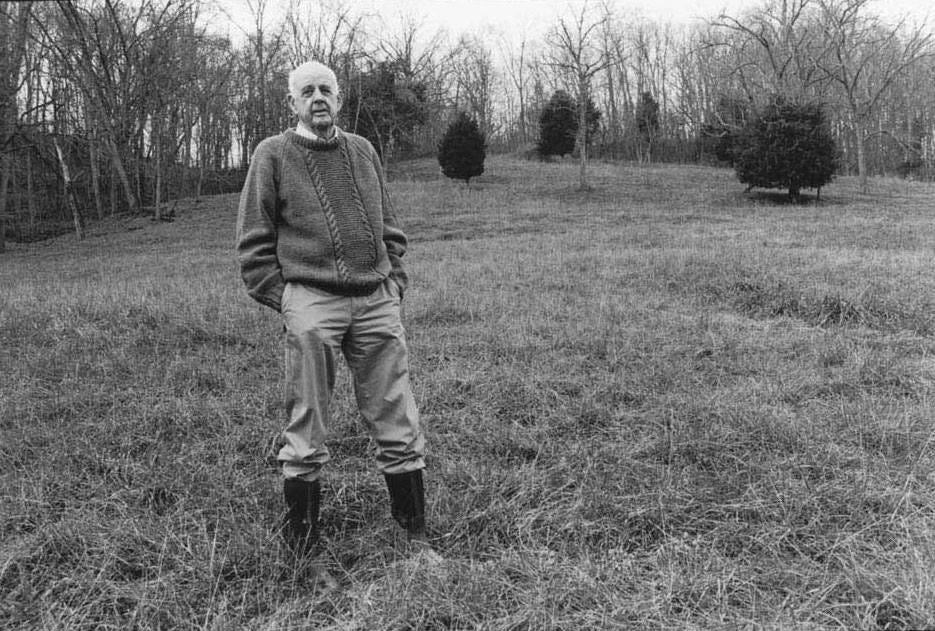
Wendell Berry is a prophet for our times
I can't say I've ever read Berry's book - something I feel I ought to rectify based on your essay - but I can say I've been enjoying the literal fruits of the labor of home gardening for a couple years now. Largely it's my wife who tackles that particular skill, seeing as I'm one of the greenhorn green thumbs you mentioned and seem to be stuck with a permanent incapability of wrapping my head around how much is too much or too little for this plant or that plant, but she handles it well and I still try to help her where I can. (Strawberries have largely been an unsuccessful grow attempt from us, but the tomatoes, lettuce, and cucumbers we get each Spring and Summer are delicious.)
It's difficult work and can certainly be tedious at times, but it's well worth it. And yes, you've only been doing it for six months, but that's enough time to learn the important lesson you did: you can't rush it.